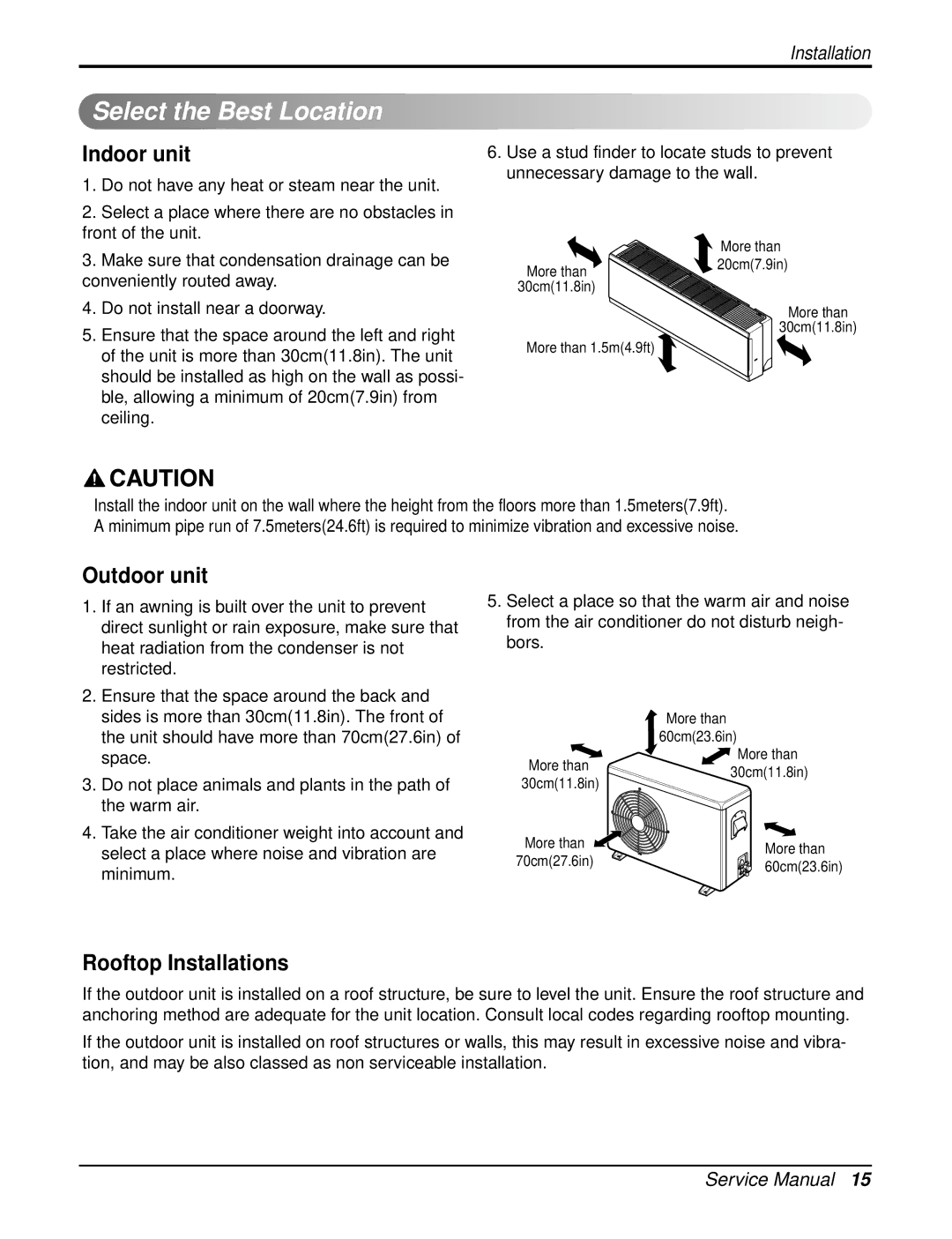LA121HPMI, LAU121CNM, LAN121CNM, LAN121CNM, LAU121CNM, LA121HPMI, LA121HPMO, LAN121HNM, LAU121HNM, LA121CPMI, LA121CPMO specifications
LG Electronics has established itself as a leader in innovative home appliance technologies, particularly in the air conditioning segment. The LG LAN121CNM, LAU121CNM, LA121HPMI, LA121HPMO, LAN121HNM, LAU121HNM, LA121CPMI, and LA121CPMO models exemplify the blend of efficiency, comfort, and advanced features that LG is known for.These air conditioning units are designed with energy efficiency in mind, boasting high SEER (Seasonal Energy Efficiency Ratio) ratings that help reduce electricity consumption. This not only saves money on energy bills but also aligns with eco-friendly initiatives by minimizing environmental impact.
The air conditioners are equipped with LG's Dual Inverter technology, which enhances cooling performance while reducing noise levels. This innovative technology allows the compressor to operate at variable speeds, resulting in faster cooling and dehumidification, as well as quieter operation than traditional units.
Moreover, the models feature a modern aesthetic with sleek designs that seamlessly blend into both residential and commercial environments. The intuitive user interface, combined with remote control capabilities, makes adjusting temperature settings easier for users, giving them full control over their indoor climate.
Another significant characteristic of these models is the use of advanced filtration systems. Many units incorporate a multi-stage filtration process that captures dust, allergens, and pollutants, ensuring the air quality in the home remains high. These filters are easy to clean and replace, making maintenance straightforward and user-friendly.
The LG LAN121CNM, LAU121CNM, and others in the lineup also include Wi-Fi connectivity. This smart technology allows users to monitor and control their air conditioning units through mobile applications, providing convenience and flexibility. Users can adjust settings, schedule operations, and receive alerts about filter maintenance directly from their smartphones.
For those looking for flexibility, these models offer various installation options. They can be installed as wall-mounted, floor-mounted, or ceiling-mounted systems, catering to different space constraints and design preferences.
In conclusion, the LG LAN121CNM, LAU121CNM, LA121HPMI, LA121HPMO, LAN121HNM, LAU121HNM, LA121CPMI, and LA121CPMO air conditioning models are exemplary products that demonstrate LG’s commitment to quality, efficiency, and user-centric design. With cutting-edge technology and a focus on sustainability, these units cater to the needs of modern consumers while ensuring comfort all year round.

